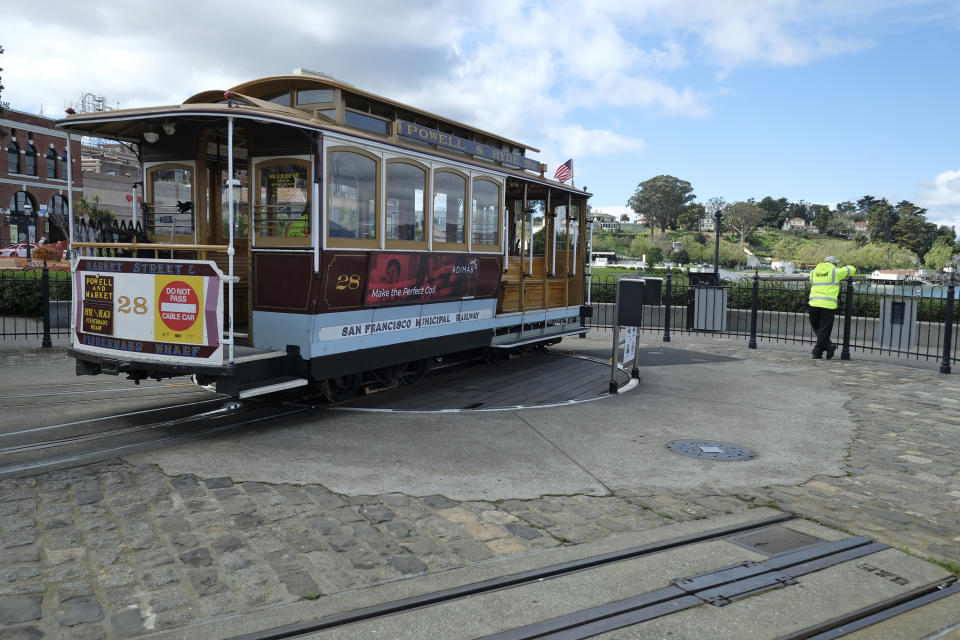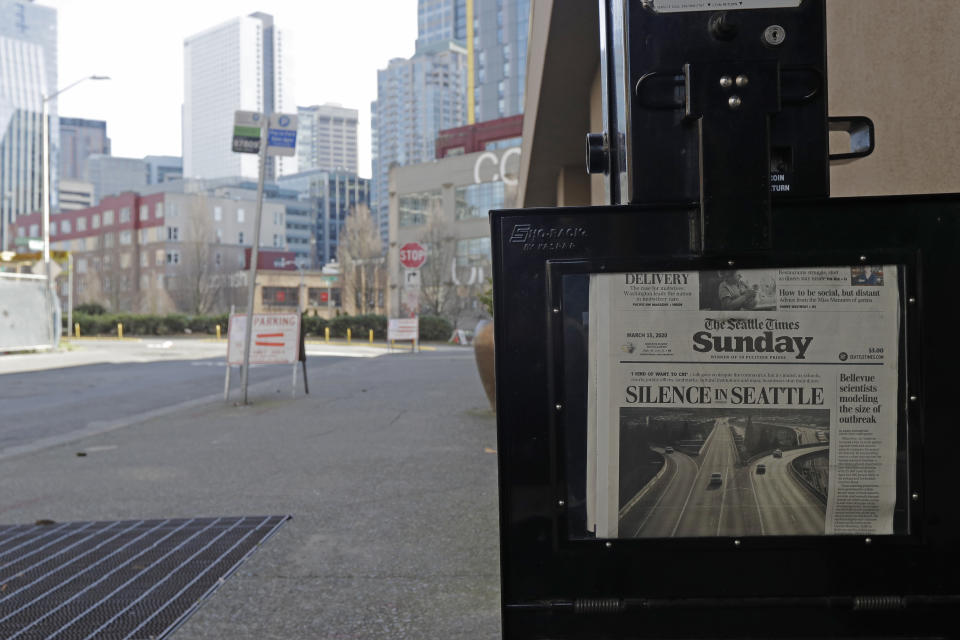Coronavirus economic impact comes into focus
The economic impact of the global coronavirus outbreak has begun taking hold in the U.S., with businesses and their employees suddenly confronting a harsh new reality that is predicted to last months.
Asked Monday if the country was heading into a recession as a result of the pandemic, President Trump replied that “it may be.” He added that restrictions on public events, gatherings, restaurants and travel may not be eased until “about July or August, somewhere in that period of time.”
For business owners and their employees, that might not be soon enough to stave off disaster.
Parker Slade, 29, decided to temporarily close his Chicago cafe, Hexe Coffee, on Sunday evening after Illinois Gov. Jay Pritzker ordered all bars and dine-in restaurants to close for two weeks. While just 93 cases have been reported in the state so far, that number is likely far lower than the number of people infected with the virus, and officials there hope to slow its spread by enforcing restrictions on interactions in public.
Initially, in order to pay his staff, Slade said he planned to keep his shop open on a limited schedule for to-go service, which is still permitted under the state-wide order. But growing concerns about the virus had started to create a tense atmosphere for customers and staff. “We touch money, credit cards, pens ... people’s food. I’m not necessarily a germaphobe but with all this stuff going on, it’s hard to stay safe when you’re open to the public,” he said. Before closing the cafe’s doors Monday afternoon, one patron’s coughing fit had prompted several others to get up and leave.
Slade, who opened Hexe in late September, said neither he nor his staff will get paid while the shop is closed. His landlord has offered to reduce this month’s rent, which also helped ease the blow of closing for two weeks, but over the long term Slade is concerned about how the broader economic fallout from the epidemic will impact his new business. “If everyone is out of work and in some kind of financial trouble, the last thing they're going to do is come to a cafe or restaurant and spend money,” he said glumly.

“The business needs to make money and the staff needs money but at the same time, we’re trying to tell people you should just not go out.”
For now, at least, he said, “I’m going to take this hit in order to help the greater good.”
Like so many workers in San Francisco on Sunday, Ernie Evangelista learned that his livelihood had come to a screeching halt. A bartender at the Royal Cuckoo in the outer Mission District, Evangelista read about Gov. Gavin Newsom’s order to close all bars in the state where 458 people have tested positive for the coronavirus and five have died.
“I have no idea what I’m going to do,” Evangelista, 55, told Yahoo News. “I have to figure something out.”
With a monthly rent of $1,900, Evangelista will have to come up with a new source of income quickly. He had been working five nights a week, and, for now, he continues to pick up shifts at the legendary Café Trieste in North Beach. But on Monday, officials in the Bay Area announced a six-county stay-at-home order beginning on March 17 that will last for three weeks.

“Temporarily changing our routine is absolutely necessary to slow the spread of this pandemic,” Santa Clara County Public Health Director Sara Cody told reporters. “Health officials from the largest jurisdictions in the San Francisco Bay Area are united, and we are taking this step together to offer the best protection to our respective communities.”
For Evangelista, that means no work behind a counter or bar, and no income.
“The majority of my money comes from tips, and I’m worried about being able to pay the rent. It’s going to be tough,” Evangelista said.
The reach of the crisis extends well beyond restaurants, bars and cafés. Jared Blank, 50, owner of Brick New York, a CrossFit gym on Lexington Ave. in New York City, says he still hasn’t gotten “a clear and distinct message about how we’re supposed to survive.”
On Monday, Gov. Andrew Cuomo held a press conference to announce that all exercise gyms in the state would be required to close. (New York City Mayor Bill de Blasio made his customary trip from his official residence in Manhattan to his long-time YMCA gym in Brooklyn on Monday morning, but his office said it would be his last for a while.)

COVID-19, the disease caused by the coronavirus, has so far been confirmed in 746 New Yorkers and has killed 6.
“The phone has been ringing off the hook with people asking if they can put their memberships on hold. Today it’s just been huge,” Blank said.
With approximately 400 members in addition to those who use the gym on a shared membership with other clubs, Blank is hoping that enough of his patrons don’t drop their monthly payments so he can continue to pay his staff.
Asked if he can hold out if Trump’s prediction that restrictions will last through July is correct, Blank is almost despondent.
“That’s a really good question. I don’t know. A couple weeks if people are willing to bear with us.”
Blank added that he’s not sure whether his insurance will help him get through the crisis.
“The last time we had to deal with insurance, when we closed because of a water leak, it took months and months and so many documents and emails and red tape,” Blank said. “I sent an email to our insurance guy today asking if this was covered. Even if it is, it’s going to be a huge deal.”
_____
Read more from Yahoo News:



